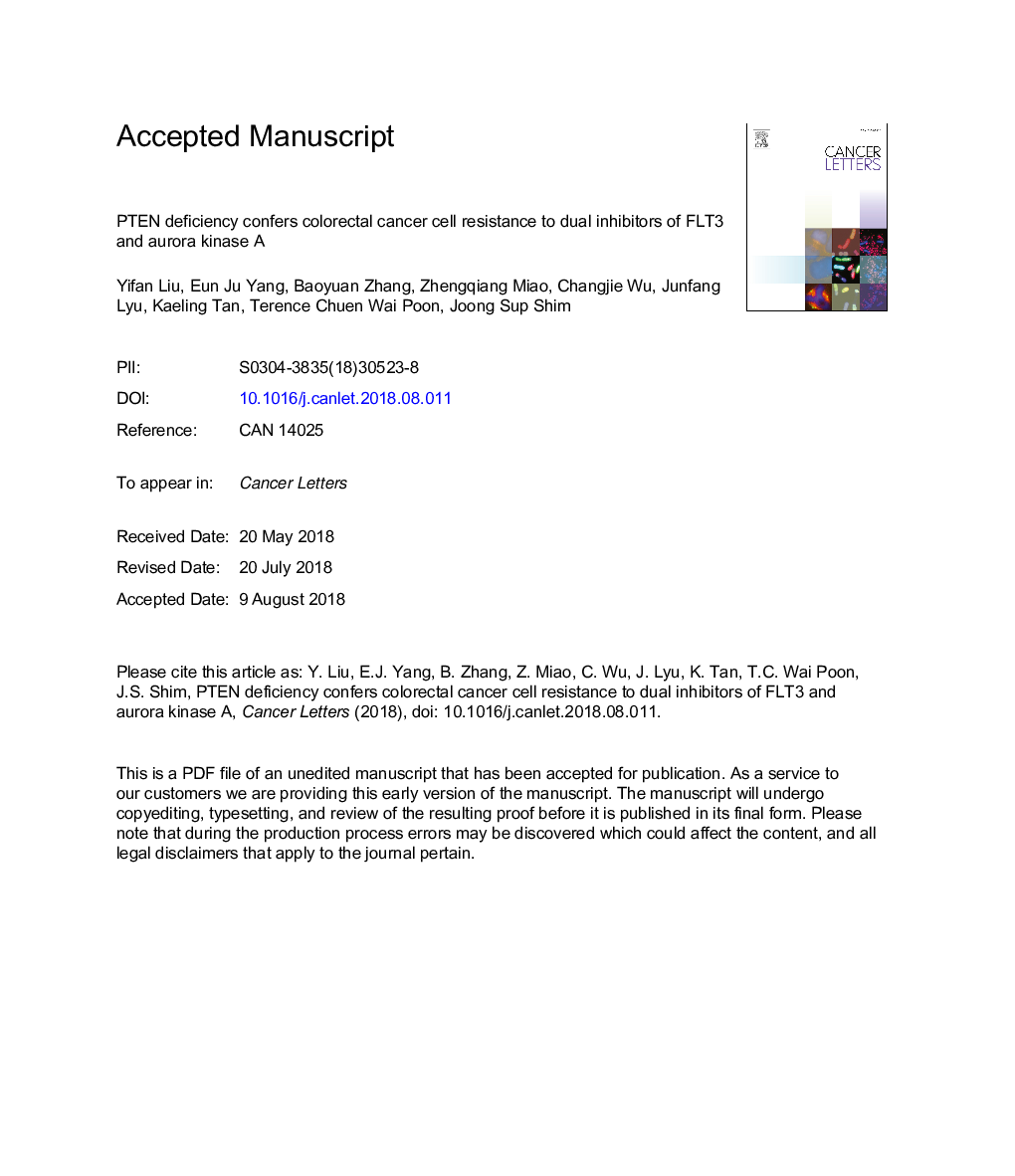| Article ID | Journal | Published Year | Pages | File Type |
|---|---|---|---|---|
| 8943846 | Cancer Letters | 2018 | 27 Pages |
Abstract
PTEN is a tumor suppressor found mutated in many cancers. From a synthetic lethality drug screen with PTEN-isogenic colorectal cancer cells, we found that mutant-PTEN cells were resistant to dual inhibitors of FLT3 and aurora kinase-A, including KW2449 and ENMD-2076. KW2449 significantly reduced the viability of wildtype-PTEN cells causing apoptosis, while little effect was observed in mutant-PTEN counterparts. Transcriptome profiling showed that members of PI3K-AKT signaling pathway were strongly changed in cells after KW2449 treatment, indicating a potential role of the pathway in drug resistance. We found that KW2449 caused a dose-dependent, biphasic induction of AKT phosphorylation at Ser473 in mutant-PTEN cells. Co-treatment with the inhibitors of its upstream signaling completely abolished the reactivation of AKT phosphorylation by KW2449 and reversed the drug resistant phenotype. These data suggest that reactivation of AKT phosphorylation at Ser473 is a key factor to confer drug resistant phenotype of mutant-PTEN cells to the dual inhibitors and that proper drug combinations that shut down AKT reactivation is necessary for the effective treatment of mutant-PTEN cancer with the dual inhibitors in clinical settings.
Related Topics
Life Sciences
Biochemistry, Genetics and Molecular Biology
Cancer Research
Authors
Yifan Liu, Eun Ju Yang, Baoyuan Zhang, Zhengqiang Miao, Changjie Wu, Junfang Lyu, Kaeling Tan, Terence Chuen Wai Poon, Joong Sup Shim,
